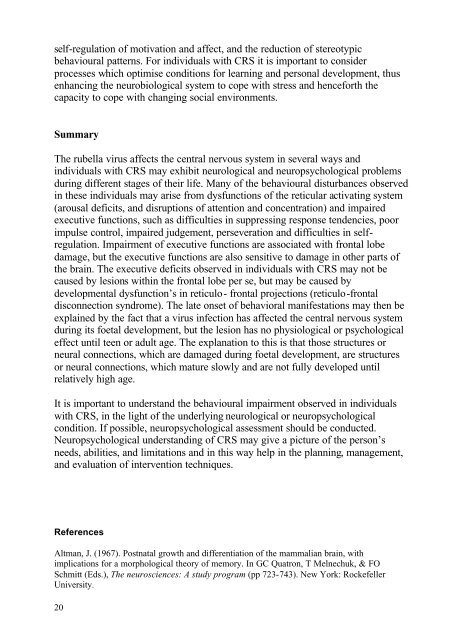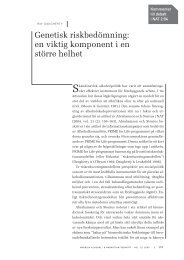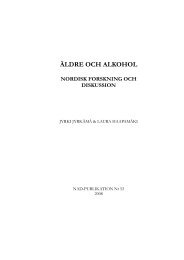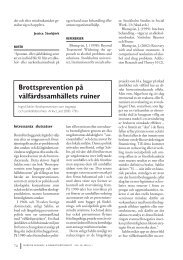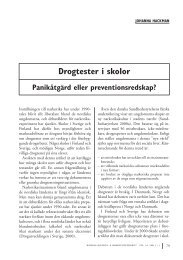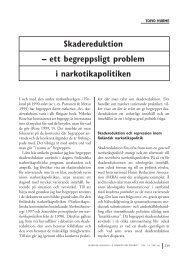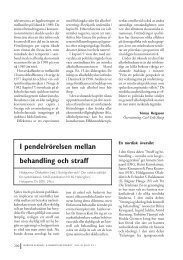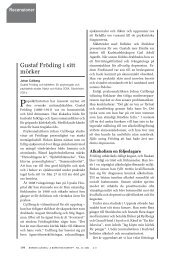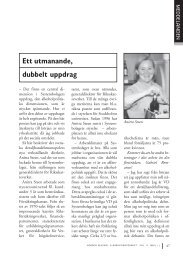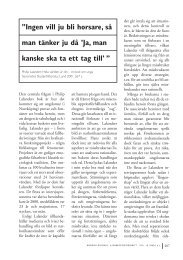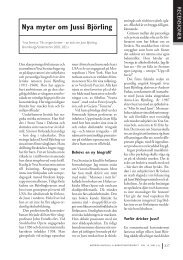CONGENITAL RUBELLA SYNDROME
CONGENITAL RUBELLA SYNDROME
CONGENITAL RUBELLA SYNDROME
Create successful ePaper yourself
Turn your PDF publications into a flip-book with our unique Google optimized e-Paper software.
self-regulation of motivation and affect, and the reduction of stereotypic<br />
behavioural patterns. For individuals with CRS it is important to consider<br />
processes which optimise conditions for learning and personal development, thus<br />
enhancing the neurobiological system to cope with stress and henceforth the<br />
capacity to cope with changing social environments.<br />
Summary<br />
The rubella virus affects the central nervous system in several ways and<br />
individuals with CRS may exhibit neurological and neuropsychological problems<br />
during different stages of their life. Many of the behavioural disturbances observed<br />
in these individuals may arise from dysfunctions of the reticular activating system<br />
(arousal deficits, and disruptions of attention and concentration) and impaired<br />
executive functions, such as difficulties in suppressing response tendencies, poor<br />
impulse control, impaired judgement, perseveration and difficulties in selfregulation.<br />
Impairment of executive functions are associated with frontal lobe<br />
damage, but the executive functions are also sensitive to damage in other parts of<br />
the brain. The executive deficits observed in individuals with CRS may not be<br />
caused by lesions within the frontal lobe per se, but may be caused by<br />
developmental dysfunction’s in reticulo- frontal projections (reticulo-frontal<br />
disconnection syndrome). The late onset of behavioral manifestations may then be<br />
explained by the fact that a virus infection has affected the central nervous system<br />
during its foetal development, but the lesion has no physiological or psychological<br />
effect until teen or adult age. The explanation to this is that those structures or<br />
neural connections, which are damaged during foetal development, are structures<br />
or neural connections, which mature slowly and are not fully developed until<br />
relatively high age.<br />
It is important to understand the behavioural impairment observed in individuals<br />
with CRS, in the light of the underlying neurological or neuropsychological<br />
condition. If possible, neuropsychological assessment should be conducted.<br />
Neuropsychological understanding of CRS may give a picture of the person’s<br />
needs, abilities, and limitations and in this way help in the planning, management,<br />
and evaluation of intervention techniques.<br />
References<br />
Altman, J. (1967). Postnatal growth and differentiation of the mammalian brain, with<br />
implications for a morphological theory of memory. In GC Quatron, T Melnechuk, & FO<br />
Schmitt (Eds.), The neurosciences: A study program (pp 723-743). New York: Rockefeller<br />
University.<br />
20


